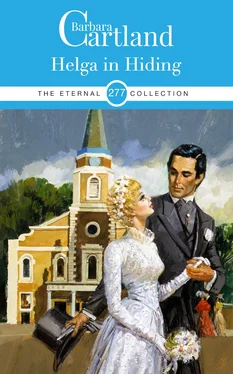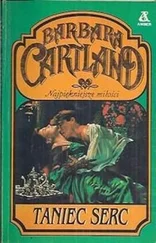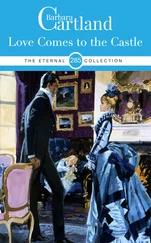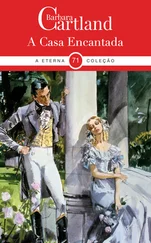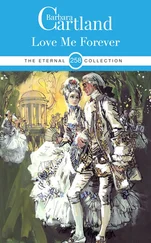The Gaiety Theatre was a London institution and the Gaiety Girls were unique over the whole world. Lovely as Goddesses, they floated to the theatre borne as it were on immortal sandals, whether they rolled up in hansom cabs, came in their own private broughams or were escorted by gentlemen with tail coats, top hats and white ties.
As they passed by they left a glimpse of grace and beauty and a fragrance of femininity which the world does not know today.
There were all classes in their ranks, some of them from what was almost the gutter and some from the aristocracy, but each one had the polish and stamp of The Gaiety .
They were selected by George Edwardes, who was the best judge of female charm the world has ever known, just as he was the best judge of talent. He was the supreme Manager of his time and his name on the bill of a play was the equivalent of a hallmark of quality.
Nobody since George Edwardes’s days has meant what he did and one name only since his time has stood for something like the same thing in the minds of the public and that was C. B. Cochran.
The Gaiety shows shone and glittered and all of London flocked to see them. They gave London its lighter moments, its laughter and its glorious girls.
It is difficult now for us to realise, when everything has become dull and mundane, what these beautiful exotic women meant to the men who watched them from the stalls and prayed that they would be lucky enough to take them out to supper after the show.
The Gaiety Girls were all beautiful and wonderful women, they not only had charm and glamour but many of them had genuine talent as well.
Millicent Melrose sat in front of the mirror in her dressing room at The Gaiety Theatre and wondered how it was possible to feel so tired.
She had come to the theatre early, as she always did, because it gave her a chance to be quiet before the show and also, she recognised, to pull herself together.
Ever since she had lost Christofer it had become increasingly difficult for her to keep up the façade of being a star not only before the public but also in front of those who she worked with.
She was certainly well aware that it was fatally easy to slip into being a nonentity and to find herself after all the years of her success out of work.
It was traditional for people to say,
“I could not imagine The Gaiety without you, Milly.”
But she was quite sure that they would be the first to say that she was well ‘past it’ and showing her age.
The mere thought of age made her glance at herself nervously in the mirror, looking for the lines which she was sure were beginning to form round her eyes and at the corners of her mouth.
“Thirty-nine next birthday!”
It seemed as if even the flowers in the room screamed it at her and it was like a dark menacing cloud hanging over her head.
None of it would have mattered if Christofer was still alive, but he was dead and could not help her now.
At night when she cried into her pillow she wished that she had died too.
It was true that he had been twenty years older than she and she might have expected him to die before her, even in those far-off days when they had both been carefree and so certain that neither of them would ever grow old.
Even now she could hear, as if it was yesterday, him saying to her,
“Come away with me, my darling one. I cannot live without you. I know it will cause a scandal, but my wife will then divorce me and, when we are married, it will all be forgotten soon and the Social world will accept you again with open arms.”
It had all sounded so very plausible with Christofer kissing her so that she thrilled with a rapture that she had not believed possible.
When Christofer told her how blissfully happy they would be, it was just impossible to be cautious, sensible or to think of anything or anyone but him.
She remembered how very exciting it had been when, leaving a note for her father and mother, she had crept out of the house one night after she was supposed to have gone to bed and Christofer had been waiting for her at the end of the drive.
He had helped her into a closed carriage and they had driven off to what she believed would be a Heaven on Earth with no regrets.
‘How young I was,’ Milly said to herself now, ‘and how extremely foolish.’
And yet she knew that, if she was able to put back the clock, she would do the same thing all over again, because Christofer had been irresistible and she would have had to be made of stone to be able to refuse him.
She could still remember the little hotel where they had stayed the night and the ecstasies they had evoked in each other so that Christofer had said to here hoarsely,
“How could we fight against a love as great as ours? How could we ever contemplate life without each other?”
He had been so confident and so had she when they had settled in a small Manor House in an obscure village in Gloucestershire and they both believed it was only a question of time before they were legally Lord and Lady Forsythe.
But Christofer’s wife was made of sterner stuff and, when he asked her for a divorce’ she refused categorically and saying,
“I am your wife and your place is with me. When you are ready to return, your home is waiting for you.”
“It is ridiculous!” Christofer had raged. “She will change her mind, of course, she will. It is only a question of waiting.”
The difficulty while they were waiting was how they were to live.
Lord Forsythe had very little money of his own and the Trustees of his wife, who was a comparatively wealthy woman, had made sure that, while he had the handling of her income, it was impossible for him to touch the capital.
Not very intelligent over money, he found he was committed to keeping up the running expenses of the house where his wife lived and which, as she had truly said, was his home.
It left him very little indeed to expend on Milly. They struggled in the country for nearly a year and then moved back to London.
“I think perhaps I had better find something to do,” Milly suggested a little nervously.
And to her surprise Christofer did not immediately refuse to discuss such an idea.
It took time, time during which they worried frantically as to how they could go on, how their bills could be met and how Christofer could somehow extract money from his wife.
Then finally they succumbed to the inevitable and Christofer returned to London to see what he could do about it.
What this entailed was that to all intents and purposes he was once again a married man, appearing at social functions with his wife and, as many men have done before him, keeping a mistress on the side.
It was Milly who suffered most, of course, she did.
The Staffords, who were extremely respectable and had played their part in the history of England, had cut her off with a proverbial shilling and, although she might have crawled back to beg their forgiveness, she was too proud to do so.
In desperation Christofer introduced her to George Edwardes and one look decided the most astute Showman of the age that she was just what he needed at The Gaiety Theatre .
The Gaiety Girls were renowned for being quite different from ordinary show girls.
In the first place a number of them were well-educated and, besides being beautiful, they behaved like ladies and had in consequence a glamour that made them superb on the stage and sought after by every man about town who was proud to be seen in their company.
The applause, the acclamation of her beauty and the many compliments she received did a great deal to assuage Milly’s feeling of guilt towards her family.
Читать дальше
